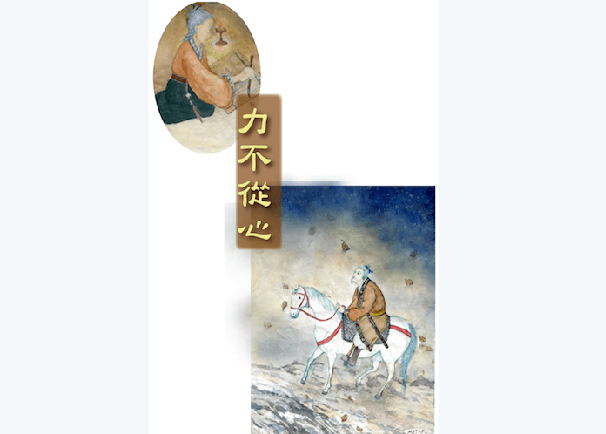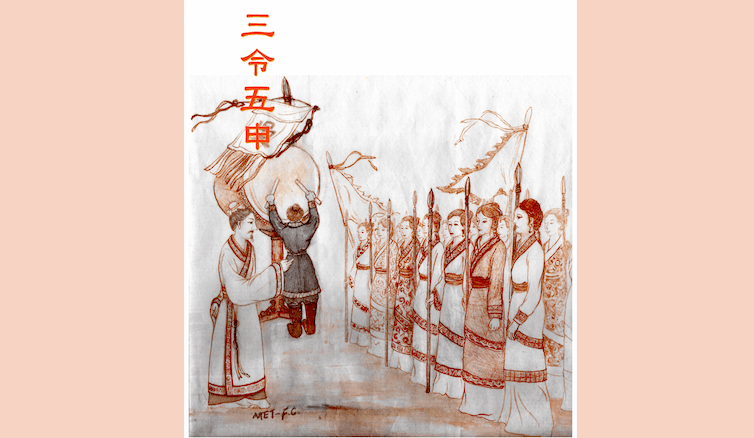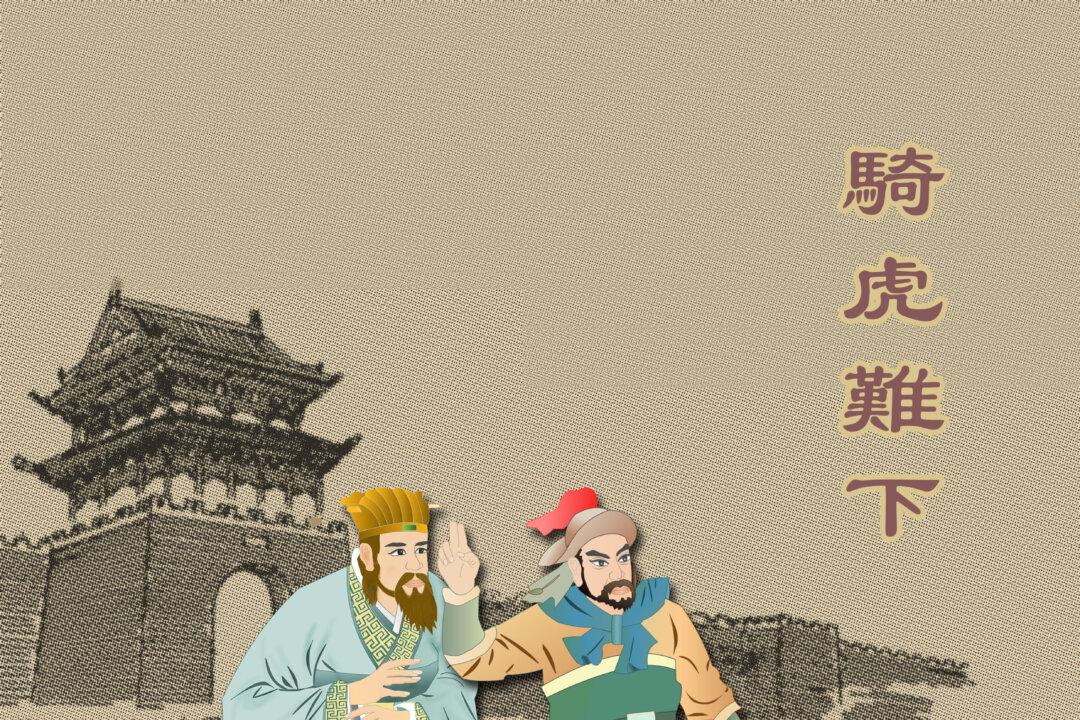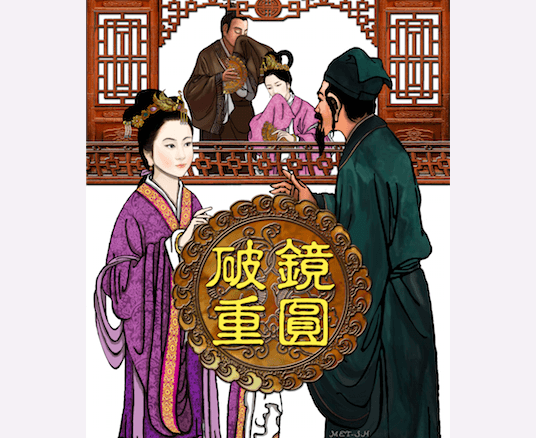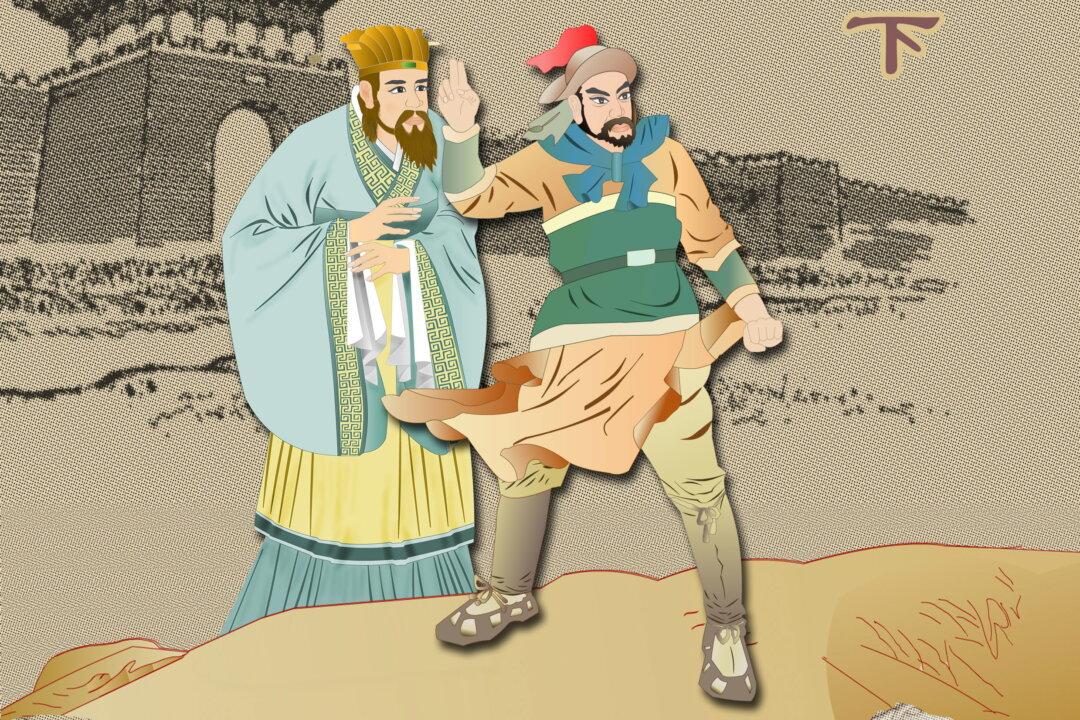The Chinese idiom “力不從心” (lì bù cóng xīn) means “unable to do as one would wish,” or that one’s ability is not equal to one’s ambition. It came from a story about Ban Chao, which is recorded in the “Book of the Later Han” (1).
Ban Chao (A.D. 32–102) was a famous general and diplomat of the Eastern Han Dynasty (A.D. 25–220). He was sent by the second emperor of the Eastern Han Dynasty to the Western Regions (Central Asia) in A.D. 73.
Ban Chao made great contributions by quashing a major national enemy and bringing peace to more than 50 neighboring countries. He re-opened and secured the trade routes to the west.
As time passed, in A.D. 88, the fourth emperor of the Eastern Han Dynasty ascended the throne and Ban Chao continued as governor of the Western Regions. The emperor and the ministers considered him irreplaceable.
As a result of their confidence in him, Ban Chao remained stationed in the Western Regions for 30 years, loyal to his duty. As Ban Chao became older, with no opportunity to visit his hometown, he became quite homesick.
He wrote many letters to the emperor, asking to be retired, but he could not get permission. Instead, he received empty comforts. Witnessing this, his sister, Ban Zhao, a female historian and litterateur, wrote directly to the emperor.
She wrote: “Among all those serving in the Western Regions, my brother, Ban Chao, is the oldest. He is almost 70, and weak and sickly. He is not as strong as he was before.”
“His hair is white, his hands shake, his ears have been damaged, and his eyes are not as piercing as before. Now, he cannot walk without a cane.”
“If enemies invade, I am afraid that Ban Chao might be unable to do as he would wish. Then, imperial interests will be impacted, and Ban Chao’s fame and achievements from his faithful service will be ruined. How sad that would be!”
Deeply moved by Ban Zhao’s letter, the emperor finally sent an imperial order to recall Ban Chao back to retire. When Ban Chao returned home to the capital of the Eastern Han, he was 71 years old. He died one month later.
Later, people conceived the idiom “unable to do as one would wish” (力不從心) from this story. It is similar to the English phrase “the spirit is willing but the flesh is weak.”
Note:
- 1. The “Book of the Later Han” (後漢書, hòu hàn shū) is a work of classical Chinese history compiled mainly by Fan Ye (A.D. 398-445). It covers the period of the Han Dynasty from A.D. 6–189.
